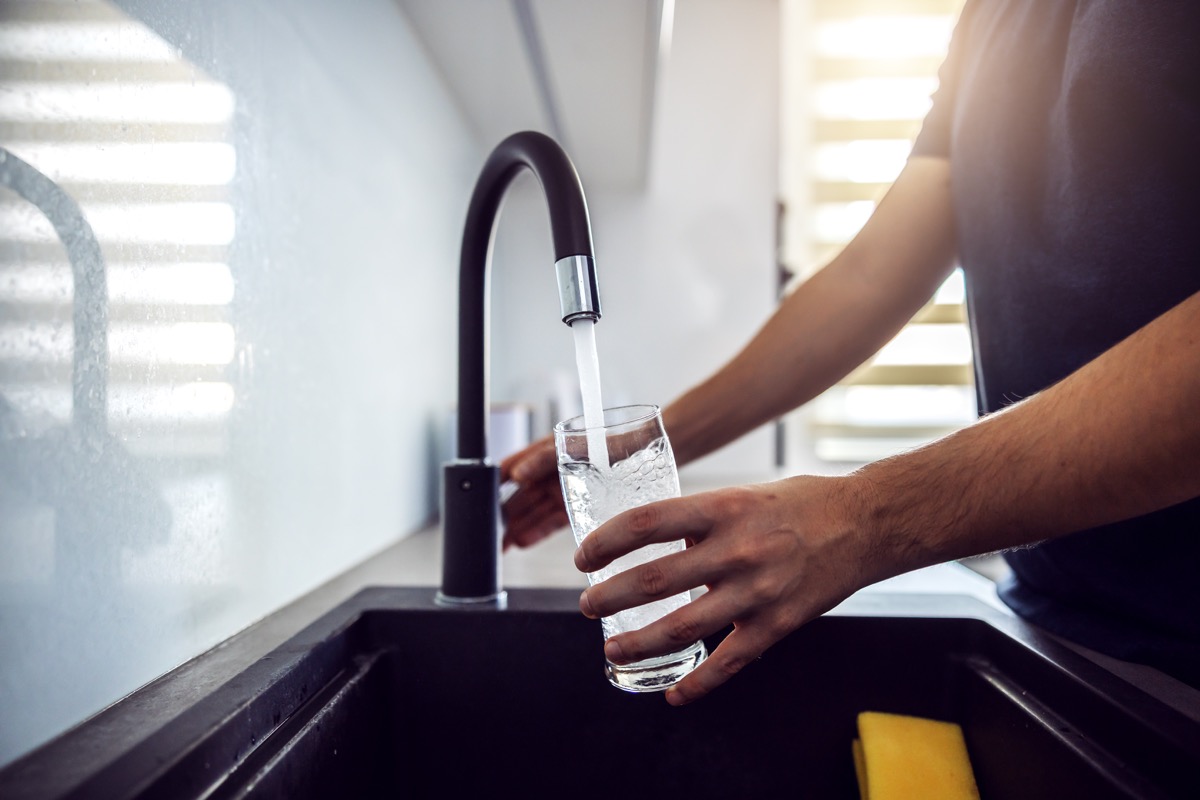RELATED: If You Have This Bottled Water at Home, Stop Drinking It Now, FDA Says. Experts say that water should lack any flavor, so any notable taste could be a signal that something is off. However, Environmental Testing and Research Laboratories (ETR Labs) of Leominster, Massachusetts specifically notes that a metallic or bitter taste is a surefire sign that you should get your water tested for various chemicals. “If your water has a metallic or bitter taste, there’s a high chance it may contain harmful substances, including but not limited to: medications, pesticides, and industrial chemicals,” according to ETR Labs. The most common metallic culprits found in water tend to be iron, lead, zinc, magnesium, or copper. While some of these are harmless in small doses, trace amounts of others can be toxic. “Usually, the causes might be from the water filtration system or from old rusting pipes. The second reason might be low pH in water,” said Wayne Anthony, a water quality expert and founder of Water Filter Data. He says it’s important to identify the cause of strange-tasting water and address it as soon as possible. RELATED: If You Kept This Drink in Your Car, Don’t Consume It, Experts Say. Taste isn’t the only thing you should pay attention to when it comes to the quality of your water. ETR Labs suggests looking out for cloudiness in your water’s appearance, the presence of sediment, strange colors, and a chlorine or sulfur scent. “Clean drinking water is always clear, no sediments, transparent, no scent, and especially lacks any taste,” said Anthony. “Changes in the taste or odor of your water should always be a sign to investigate further,” says Michael Goldman, the president of water cooler company Aquaverve. He suggests talking with your water supplier, municipality, or local health department to see if they have an explanation for the changes in your water. RELATED: For more up-to-date information, sign up for our daily newsletter. Senior scientist Chris Myers of Environmental Laboratories Inc. in Indiana says you should have your water tested any time “something is off,” either to your eyes, nose, or mouth. He also notes that if a family member falls ill suddenly, especially with intestinal distress, it’s worth getting your water tested. Myers points out that testing “allows you to make informed decisions about water treatment solutions to reduce or eliminate your water contamination challenges” to help keep your family safe. It’s not just a stomachache you need to look out for. According to the U.S. Environmental Protection Agency, exposure to chemicals via drinking water can result in various short and long-term health effects.ae0fcc31ae342fd3a1346ebb1f342fcb “Exposure to high doses of chemicals can lead to skin discoloration or more severe problems such as nervous system or organ damage and developmental or reproductive effects,” according to the EPA. The agency notes that smaller doses over a long period of time could lead to chronic, long-term conditions, including cancer. RELATED: Never Drink a Lot of This With Tylenol, Study Says—and No, It’s Not Alcohol.



